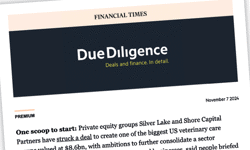It is the best of times and the worst of times for journalism. The worst of times can be seen every weekday at the Old Bailey and will be for many months to come, and in attempts to limit press freedom.
Evidence for some of the best of times for journalism was on display at the annual Society of Editors conference in London in November – some of it in surprising forms.
Back to basics
Perhaps the biggest surprise about the state of journalism came from Sun editor David Dinsmore as he surveyed the current state of the business.
Dinsmore has taken his reporting staff back to the future by practising anew, old-fashioned journalism, talking to people, knocking on doors and thinking carefully about what you do.
“I am a great believer in playing the ball in front of you. You deal with the set of circumstances you have got and make the best of it,” Dinsmore told the conference during a panel discussion on the Changing Face of Journalism.
One of the “circumstances” included the impact of the Bribery Act.
“There was the analogy of the chambermaid in the hotel who sees something going on. You can’t pay her because she has a duty of care to the employer. That’s where we are with that,” the Sun editor said.
The difficulty of paying for stories these days has prompted a journalism-based response.
“The flipside to that is that we have gone back to knocking on doors which is a fantastic development. We have gone back to the more traditional methods of journalism,” Dinsmore explained.
The Sun also took another big “backwards” step eighteen months ago by re-opening its Manchester office - with spectacular results. In twelve months the seven or eight strong Manchester team produced 67 splashes for the paper.
The Sun, which now lives behind a paywall, is also keen to use Twitter to both generate stories and market them.
But, paradoxically, the greater the speed of the Twitter flow of news and views, the more time The Sun is now taking to think about and check stories.
There was unanimity on the panel that this really was the best of times for journalism helped by the development of technology and the social media.
Despite obvious economic pressures, there is a growing sense that established media really can stand out against the endless flow of unverified information.
Simon Fox, chief executive of Trinity Mirror, which has turned its back on paywalls and has just posted a 70 per cent rise in its website traffic to 45 million, told the conference: “The standard of journalism is absolutely phenomenal.”
And Peter Barron, the former Newsnight editor, now director of external and public affairs for Google Europe, Middle East and Africa, argued that: “the possibilities for journalists are so rich today.”
Steve Auckland, former chief executive of David Montgomery’s Local World, joined the optimistic consensus by pointing out that, thanks to the web, overall newspaper audiences were growing for the first time in decades.
And journalist multi-tasking could even extend to selling advertising.
“There is nothing wrong with a journalist or an editor using their contacts to sell advertising. That doesn’t compromise their ability to report news,” claimed Auckland, thereby causing a raised eyebrow or two.
Freedom fighters
If journalism is in fine fettle, then so also is the spirit to fight back against those seeking to impose new limits on press freedom.
The fight-back began with the welcoming address of Jonathan Grun, president of the SoE and editor of the Press Association who said “we are fighting again for citizen’s rights” – especially the freedom of the press.
The UK was seen as an international benchmark.
“Intervention of the state in the regulation of the media will not serve society, and it will send out a dangerous message to repressive regimes across the world,” Grun argued.
A new front was opened by Lord Grade, former chairman of both the BBC and ITV, and an independent member of the Press Complaints Commission.
It was “bonkers” said Lord Grade that Parliament will have more right to interfere in the editorial freedom of the press than it does in the editorial freedom of the BBC. Parliament holds debates on the BBC but never votes on the Corporation – unlike the press, on matters such as exemplary damages and any future amendment to the Royal Charter.
The former BBC chairman argued that the Royal Charter and the legislation on exemplary damages went through so fast there was about them “the strong smell of a seriously ill-conceived piece of Parliamentary draftsmanship”.
The Conservative peer quoted the views of human rights expert Lord Pannick QC that to penalise by exemplary damages would be a breach of Article 10 of the Convention on Human Rights, the article guaranteeing freedom of expression.
In English law, Lord Pannick added, judges were usually opposed to bringing the notion of punishment, rather than compensation, into civil law.
“The protection from exemplary damages supposedly offered by the Royal Charter may well turn out not to be a nice carrot but rather more a dead parrot,” Lord Grade forecast.
There was more legal good news from Sir James Mumby, president of the Family division of the High Court who argued that there was a greater need for transparency in family cases that by definition involved interference and intrusion by the state and local authorities into the lives of citizens.
Sir James, who in another life would have made an excellent Rumpole of the Baily, said he was determined that the new Family Court “should not be saddled with the charge that we are a system of secret and unaccountable justice”.
The head of the Family division who was determined not to say a word more than he intended to, nevertheless said he planned to open up access to court documents.
And if the press thought it was being wrongly excluded, Sir James urged newspaper to formally challenge questionable decisions in the court - perhaps forgetting that can be an expensive business.
Sticking together
There was further implied support for the press even in the controversial publishing of NSA material leaked by Edward Snowden from Christopher Graham, the UK’s information commissioner.
Graham, head of the data protection body, told the conference he was very concerned by reports of the scale of online eavesdropping.
“Security cannot trump every other consideration,” insisted Graham who said he was particularly alarmed by reports that encryption had been compromised and that the large internet companies “have been leaving open the backdoor for security services.”
Freedom of information campaigner Heather Brook, who believes that The Guardian had every right to publish the Snowden revelations, criticised papers such as The Times and Daily Telegraph for “shocking front pages” attacking the Guardian for allegedly creating national security risks with its reports.
The view was that newspapers should stick together in support at least of the principle of publication even while having different views on how individual stories are actually covered.
Police relations
A top panel of very senior policemen created rather more concern about the future of relations between police and media.
Keith Bristow, head of the new National Crime Agency, made it clear he wanted to engage with journalists but in a professional, transparent way and “not as mates”.
Bristow promised that the NCA, which some have likened to a British FBI, will not “discuss leaks and we won’t leak”.
With a similar approach, Alex Marshall, chief executive of the College of Policing warned that under new rules, a communications officer must now be present when police officers speak to journalists.
The names of those arrested would not be revealed before being charged unless there were sound operational reasons for doing so.
As Dermot Murnaghan who chaired the session noted, it all added up to a formula for the “the death of the tip-off”.
Under fire
There was an even more problematical speech by Theresa May, the home secretary.
Some of the most interesting aspects were things she didn’t say. For instance, she pointed out that the government and Hacked Off Royal Charter had all party support but fell short of advocating that the newspaper industry should actually sign up to it, perhaps in the realisation that most if not all of the industry had no intention of doing such a thing.
She was equally circumspect about the Snowden NSA leaks merely noting that editors had to “recognise their responsibilities” while conceding that deciding what leaked material was in the public interest was not “an easy one”.
Asked how it could be right that a newspaper had to pay the costs of a litigant even if the newspaper won, the home secretary dissembled.
“One of the issues that has significantly frustrated the public in relation to redress around newspapers is that they feel that the balance is wrong today, that the balance is too much in favour of the paper and that redress is not seen to be suitable and sufficient,” she replied.
Teresa May ran into more trouble with her main theme that the BBC was somehow undermining local newspapers by dominating “locally-significant news”.
There was indeed a problem three years ago until the BBC Trust intervened and placed strict limits on a planned BBC expansion into local websites.
Paul Linford, editor of holdthefrontpage, said the consensus among regional editors at the conference was that most local BBC websites were so poor and so full of old news lifted from their own titles that they scarcely represented such a threat.
KM Group chairwoman Geraldine Allinson said the BBC could begin to help the local media “by attributing stories to us which they never do”.
The BBC’s head of newsgathering, Fran Unsworth, snapped back from the audience to deny the allegation adding: “Quite a lot of people have lifted BBC stories and put them in their papers without attributing them as well.”
She insisted: “The problems of papers cannot be laid at the BBC’s door.”
At the end, it was Lord Hunt, chairman of the Press Complaints Commission who delivered the coup de grace to the government-backed Royal Charter.
The publishers’ new regulator enjoyed near universal support and the Charter was nothing more than a “side-show” and a “cul-de-sac”, Lord Hunt said.
(Picture by Nick Carter.)












